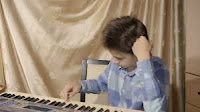Addressing the Root Causes of Disobedience in Kids on the Autism Spectrum
“How can I get my 9 y.o. son (high functioning autistic ) to obey and do as he's told? He won't do his homework and refuses to clean his room. He is defiant and talks back. When we try to discuss these problems with him in a peaceful, mature manner, he usually ends up getting angry and yells at us. And with the recent start of summer school, things have gotten much worse. What are we doing wrong?” Unfortunately, disobedience is an issue more common in High-Functioning Autism (HFA) than in the general population. It can occur for numerous reasons. For example, anxiety, low-frustration tolerance, sensory sensitivities, social skills deficits, difficulty understanding emotions and their impact on others, when rituals can’t get accomplished, when the youngster's need for order or symmetry can’t be met… just to name a few. Thus, it’s important to understand that in many cases, the child’s oppositional behavior may be a symptom of some underlying issue related to his or

